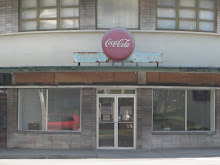
Saturday, February 28, 2009
How do we change the habits of hundreds of thousands of people?

On the PBS round table discussion (discussed below), Senator Mike Gabbard asked this rhetorical question: "How we change the habits of hundreds of thousands of people?" The key is education, he said, and the place to begin to educate our citizens is in our schools.
As an educator, his statement got me excited. But then after a couple days of mulling it over, I have to say, I'm not sure if I agree that education is the key.
I don't teach environmental issues explicitly in my classroom, and yet the issue comes up. I've shown my students "The Story of Stuff"(they loved it) they've weighed their lunchtime trash as part of National Green Week (didn't love it). When asked how they would change the world or what we need to do to make the world a better place, many often cite the problem of garbage--perhaps because this is something tangible that they do deal with every day in their own lives. They've done research on self-selected issues in their community as part of Project Citizen, many invariably choosing environmental issues including the problem of Oahu's overflowing landfills, and yet when it comes time to throw away their trash, I've seen the best and brightest and most earnest of my students throw their plastic bottles into the trash can. Why?
I posed this question to my students on Friday and they whined emphatically that the recycling bins were too far away, and yet every day I see the numerous recycling bins on our campus stand there with just one or two bottles in them while the students continue to deposit their plastic bottles in the trash cans right to the recycling bin.
The only answer I can think of is: habit. Or perhaps: culture? Certainly other schools do a better job of encouraging recycling than our school seems to. If education is the key, how do we educate? How do we change the habits of hundreds of thousands of people?
Subscribe to:
Post Comments (Atom)













No comments:
Post a Comment